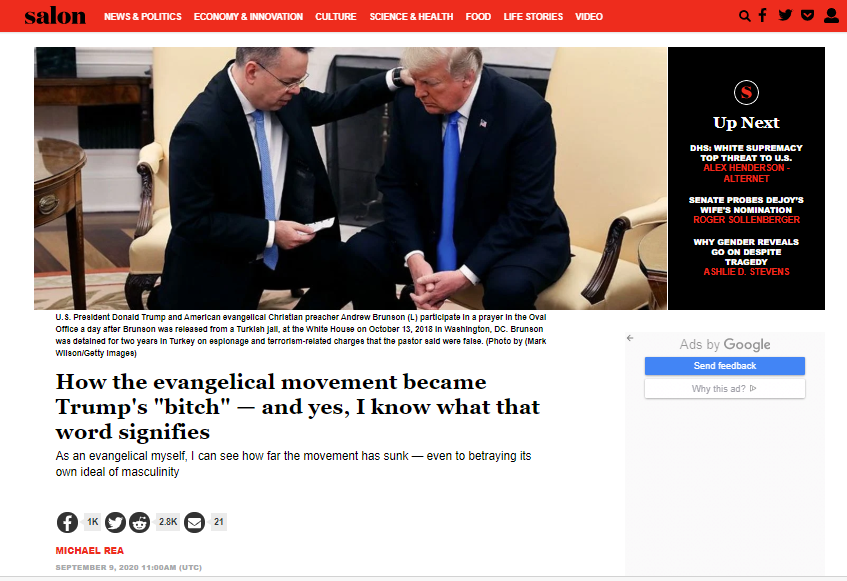
Excerpts:
As an evangelical myself, I can see how far the movement has sunk — even to betraying its own ideal of masculinity
In her recent book, “Jesus and John Wayne: How White Evangelicals Corrupted a Faith and Fractured a Nation,” Calvin University historian Kristin Kobes Du Mez argues compellingly for the conclusion that evangelical infatuation with Trump stems in large part from the “cult of masculinity” that American evangelicalism has both cultivated and succumbed to over the past century. What evangelicals wanted, and found, in Trump was not just a (potentially) powerful ally, but a man of a certain sort — a political strongman whose brash and swaggering demeanor made it clear not only that, but how he would wield power on their behalf.
“Jesus and John Wayne” is a tour-de-force indictment of the white evangelical cult of masculinity.
Michael Rea, Salon.com
But the indictment comes not so much at the level of analysis as at the level of mere description. Although Du Mez has done a brilliant job of weaving a narrative that brings into high relief the relevant tendencies and trends within American evangelicalism, analytical commentary was not her book’s main task. Nevertheless, as has often been the case with evangelicalism’s president-hero Donald Trump, description is all it takes to indict. The picture that emerges is one according to which, time and again (and increasingly over the years), the culture and visible leadership within American evangelicalism has persistently valorized a John Wayne-style conception of masculinity, sought to empower and emulate leaders who exemplify this conception, and embraced a political agenda that supports it.
What then can be done? What critique could possibly be offered that might actually speak to people still at least partly in the grip of American evangelicalism’s cult of biblical manhood and womanhood? What is needed, it seems to me, is not so much reasoned argument as a new lens through which to view the authorities in that movement — again, folks like Dobson, Driscoll and Piper. To hold up the lens, in turn, it will help to speak the language.
So I give you “the bitch.”. . . .
Michael Rea. “How the Evangelical Movement Became Donald Trump’s ‘Bitch’ – and Yes, I Know what that Word Signifies.” Salon.com. 9 September 2020. https://www.salon.com/2020/09/09/how-the-evangelical-movement-became-trumps-bitch–and-yes-i-know-what-that-word-signifies/
